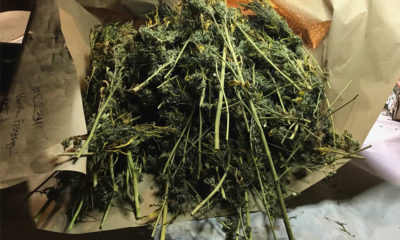
Cannabis
Medicine in Transit: Know Your MMJ Rights While Traveling
As the U.S. continues to move toward progressive marijuana policy, it’s important that travelers realize that no two states have identical medical marijuana laws. Because cannabis is still considered to be a Schedule I substance by the federal government, there is no blanket policy for possession which spans the whole country.
This situation creates a significant problem for patients who are in need of medicating daily. Performing even the simplest of activities – like enjoying a hike while using cannabis – can land you in a world of hurt, even in a legal state. For example, within all U.S. National Parks, which are under federal jurisdiction, a patient’s medical marijuana card is completely worthless. Flying to a destination where medical marijuana is accepted by that state? The TSA’s website reads, “TSA security officers do not search for marijuana or other drugs,” but goes on to say that if they find anything that is considered an illegal drug, they will hand the matter over to local authorities. Hardly a guarantee of safety.
Still, there are places of pot refuge in the country. Anyone over 21 years of age can legally possess cannabis in Washington, Colorado, Oregon, Alaska or Washington D.C. – no medical marijuana card required. But for the remaining 19 states, regulations vary.
As states look to ease the strain on people traveling with cannabis, as well as welcoming canna-tourists, a system of reciprocity is helping to even the landscape. Reciprocity in a state’s medical law means that the state will, to some degree, recognize medical marijuana cards issued by other states. Arizona, Maine, Michigan, Nevada, New Hampshire and Rhode Island all have reciprocal aspects to their laws. It should be noted that many state reciprocity laws require that the patient’s qualifying condition in her home state be a condition that is specified in the law of the state offering reciprocity.
In the end, the most important protection any patient can have is proper knowledge. Learn what the medical marijuana laws are for the state you’re headed to. Call dispensaries at your desired destination and ask them pointed questions. Also, NORML.org is an excellent resource for nailing down current marijuana laws across the nation.
Reciprocity Rights
ARIZONA
Patients can possess cannabis but cannot utilize the states’ dispensaries.
MAINE
Out-of-state patients may utilize a dispensary for up to 30 days, but must have a written note from a recommending medical marijuana doctor.
MICHIGAN
Some dispensaries accept out-of-state cards while others won’t– again, calling ahead will alleviate any confusion.
NEW HAMPSHIRE
Out-of-state patients may not service New Hampshire dispensaries, but may legally possess medical marijuana if they have entered the state with it and have conditions that are also classified as qualifying conditions in New Hampshire.
NEVADA
Out-of-state patients can use dispensaries, but they must sign an affidavit and are limited to only one dispensary for at least a month, so checking out the menu ahead of time is highly recommended.
RHODE ISLAND
Patients can possess cannabis but cannot utilize the states’ dispensaries.
Originally published in Issue 20 of Cannabis Now. LEARN MORE
TELL US, have you had any problems accessing cannabis while traveling?




















